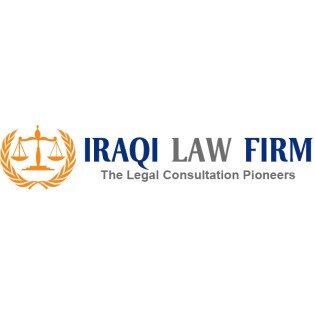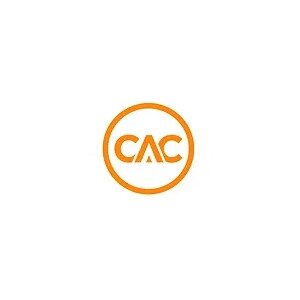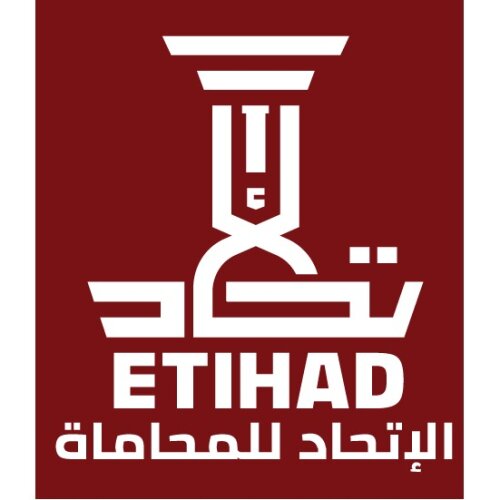Best Renewable & Alternative Energy Lawyers in Iraq
Share your needs with us, get contacted by law firms.
Free. Takes 2 min.
Or refine your search by selecting a city:
List of the best lawyers in Iraq
About Renewable & Alternative Energy Law in Iraq
Renewable and alternative energy is a rapidly developing field in Iraq, driven by a national strategy to diversify the energy mix and reduce reliance on oil and gas. With vast solar and wind resources, as well as significant potential for biomass and geothermal energy, Iraq is experiencing growth in energy projects and investments. The Iraqi government is actively encouraging development in this sector by updating legal frameworks to support both local and foreign private sector involvement, environmental sustainability, and energy security. As a result, legal issues related to permits, land acquisition, project finance, and regulatory compliance are more common than ever.
Why You May Need a Lawyer
Legal assistance with renewable and alternative energy projects in Iraq is essential for various reasons. You may require a lawyer if you are:
- Seeking licenses or permits from local and national authorities for renewable energy projects.
- Negotiating joint ventures, partnerships, or contracts with Iraqi or foreign developers and investors.
- Understanding and complying with environmental regulations and standards.
- Managing land acquisition and property rights for solar or wind farms.
- Navigating disputes over project delivery, performance guarantees, or regulatory approvals.
- Dealing with tendering and procurement processes for government-supported projects.
- Securing project financing or engaging in mergers and acquisitions with energy companies.
- Protecting intellectual property related to innovative technologies and solutions.
- Understanding tax incentives, customs duties, and tariff regulations for energy equipment importation.
- Complying with local labor and safety laws during project execution or operations.
Local Laws Overview
Iraq’s legal framework for renewable and alternative energy encompasses a range of national and regional laws, administrative instructions, and international agreements. The most relevant aspects include:
- Government initiatives under Vision 2030 and the National Development Plan target an energy mix with at least 10 percent contribution from renewable sources.
- The Ministry of Electricity and Ministry of Oil have overlapping jurisdiction, with the Ministry of Electricity responsible for most renewable projects.
- Projects often require a combination of federal and provincial permits, especially for land use and environmental impact assessments.
- Public-private partnership (PPP) laws have been updated to facilitate foreign and local investment.
- There are incentives for renewable energy investments, including customs exemptions for equipment and possible income tax breaks.
- Power purchase agreements are becoming standardized, but careful legal review is essential due to regulatory and political risks.
- Dispute resolution clauses increasingly provide for arbitration under local or international rules.
- Environmental laws, including those enforced by the Ministry of Environment, mandate comprehensive impact assessments for most energy projects.
- Labor laws and standards for health and safety are enforced in project development, particularly for large-scale solar and wind installations.
- Intellectual property rights for technologies and know-how are protected under Iraqi law and relevant international treaties to which Iraq is a party.
Frequently Asked Questions
What types of renewable energy projects are permitted in Iraq?
Solar, wind, hydropower, biomass, and geothermal projects are all permitted under current Iraqi laws, subject to meeting technical and environmental standards.
What permits are needed to start a renewable energy project?
Depending on the project size and location, you may need permits from the Ministry of Electricity, Ministry of Oil, Ministry of Environment, and local authorities. These include construction, environmental, and operational permits.
Is foreign investment allowed in renewable energy projects?
Yes, Iraq encourages foreign direct investment in the renewable energy sector, and there are frameworks to facilitate joint ventures and wholly foreign-owned projects.
What incentives are available for renewable energy projects?
Incentives may include customs exemptions for importing equipment, income tax breaks, and in some cases, long-term power purchase agreements with the government.
How are power purchase agreements structured in Iraq?
Power purchase agreements are typically negotiated between developers and the Ministry of Electricity, with provisions for guaranteed offtake, pricing, and dispute resolution.
Are there environmental regulations to consider?
Yes, environmental impact assessments are required for most renewable energy projects, and ongoing compliance with environmental standards is mandatory.
How is land acquired for renewable energy projects?
Land can be purchased, leased, or granted under specific project agreements, often requiring negotiations with local authorities and landowners.
What dispute resolution methods are common?
Many contracts include arbitration clauses, often calling for proceedings in Iraq or under international rules such as those of the ICC or UNCITRAL.
What are the main risks in renewable energy investments in Iraq?
Risks include regulatory changes, political instability, security concerns, payment delays, and challenges in land acquisition or local community relations.
How can a lawyer help protect my interests in renewable energy projects?
A lawyer can ensure compliance with all laws and regulations, negotiate favorable contracts, address disputes, protect your intellectual property, and help secure permits and incentives.
Additional Resources
Several governmental bodies and organizations support renewable and alternative energy in Iraq:
- The Ministry of Electricity - primary regulator for most renewable projects
- The Ministry of Oil - involved especially for bioenergy projects
- The National Investment Commission - supports foreign and local investments
- The Ministry of Environment - responsible for environmental approvals and oversight
- The Iraqi Renewable Energy Association - industry association for guidance and networking
- United Nations Development Programme (UNDP) Iraq - provides supportive studies and project advice
- Local chambers of commerce - can provide networking, investment, and regulatory information
Next Steps
If you are considering a renewable or alternative energy project in Iraq or facing related legal issues, it is important to consult with an experienced lawyer familiar with the energy sector. Here are some steps you can take:
- Identify your legal needs, such as permitting, compliance, or dispute resolution.
- Gather documents related to your project idea, investments, or ongoing operations.
- Contact a legal professional with proven experience in the Iraqi energy and infrastructure sector.
- Prepare to discuss your goals, timeline, and any potential risks or challenges you have identified.
- Request an initial legal assessment and a clear outline of the necessary steps and estimated costs.
- Stay informed about regulatory changes and seek ongoing legal support as your project develops.
Taking the time to secure proper legal advice ensures your interests are protected and increases the chances of your renewable or alternative energy venture succeeding in Iraq.
Lawzana helps you find the best lawyers and law firms in Iraq through a curated and pre-screened list of qualified legal professionals. Our platform offers rankings and detailed profiles of attorneys and law firms, allowing you to compare based on practice areas, including Renewable & Alternative Energy, experience, and client feedback.
Each profile includes a description of the firm's areas of practice, client reviews, team members and partners, year of establishment, spoken languages, office locations, contact information, social media presence, and any published articles or resources. Most firms on our platform speak English and are experienced in both local and international legal matters.
Get a quote from top-rated law firms in Iraq — quickly, securely, and without unnecessary hassle.
Disclaimer:
The information provided on this page is for general informational purposes only and does not constitute legal advice. While we strive to ensure the accuracy and relevance of the content, legal information may change over time, and interpretations of the law can vary. You should always consult with a qualified legal professional for advice specific to your situation.
We disclaim all liability for actions taken or not taken based on the content of this page. If you believe any information is incorrect or outdated, please contact us, and we will review and update it where appropriate.
Browse renewable & alternative energy law firms by city in Iraq
Refine your search by selecting a city.

















